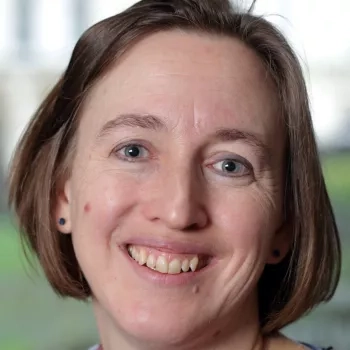Automated TRCBC1 and TRBC2 BaseScope™ as a Novel, Quicker and Cheaper Method for the Diagnosis of T-Cell Lymphoma

While assessment of B-cell populations for monotypia (kappa or lambda light chain restriction) as a surrogate for monoclonality, and thus likely malignancy (lymphoma or leukaemia), is well understood, an analogous approach for suspected T-cell lymphoma does not exist in routine clinical practice.
At present, cases of suspected T-cell lymphoma undergo T-cell receptor clonality studies, which introduce clinical delay, are costly and require highly trained staff for interpretation, as well as losing any morphological or immunophenotypic context of clonal populations of cells.
The University of Cambridge: ·
- Undertook a pilot study in T-cell lymphomas and corresponding benign samples on the BOND RX research stainer, using BaseScope™ probes located in the highly divergent 3’UTRs of TRBC1 and TRBC2. ·
- Showed that accurate diagnosis of T-cell lymphomas could be achieved in the majority of cases with this method. ·
- Obtained similar results for the companion animals, dog and cat, in which the clinical question of T-cell lymphoma arises more frequently than in humans.
Data will be presented indicating the potential utility of this approach in clinical practice.
For Research Use Only. Not for use in diagnostic procedures.
About the presenter

Having undertaken her training and subsequently worked in both Oxford and Cambridge, Liz Soilleux is an Associate Professor, Honorary Consultant Pathologist and Research Group Leader in the Department of Pathology, University of Cambridge. She spends half of her time contributing to Cambridge’s large regional Haematopathology and Oncology Diagnostic Service, diagnosing lymphomas and leukaemias. She also undertakes molecular reporting (including of T and B-cell clonality studies) in the East Genomic Laboratory Hub, the largest of the UK’s genomic laboratory hubs. Her research interests lie in the use of harnessing aspects of T-cell receptor biology in diagnostics and in using machine learning approaches to advance diagnostic practice.
Related Content
El contenido de Leica Biosystems Knowledge Pathway está sujeto a las condiciones de uso del sitio web de Leica Biosystems, disponibles en: Aviso legal.. El contenido, incluidos los webinars o seminarios web, los recursos de formación y los materiales relacionados, está destinado a proporcionar información general sobre temas concretos de interés para los profesionales de la salud y no está destinado a ser, ni debe interpretarse como asesoramiento médico, normativo o jurídico. Los puntos de vista y opiniones expresados en cualquier contenido de terceros reflejan los puntos de vista y opiniones personales de los ponentes/autores y no representan ni reflejan necesariamente los puntos de vista ni opiniones de Leica Biosystems, sus empleados o sus agentes. Cualquier enlace incluido en el contenido que proporcione acceso a recursos o contenido de terceros se proporciona únicamente por comodidad.
Para el uso de cualquier producto, debe consultarse la documentación correspondiente del producto, incluidas las guías de información, los prospectos y los manuales de funcionamiento.
Copyright © 2025 Leica Biosystems division of Leica Microsystems, Inc. and its Leica Biosystems affiliates. All rights reserved. LEICA and the Leica Logo are registered trademarks of Leica Microsystems IR GmbH.


